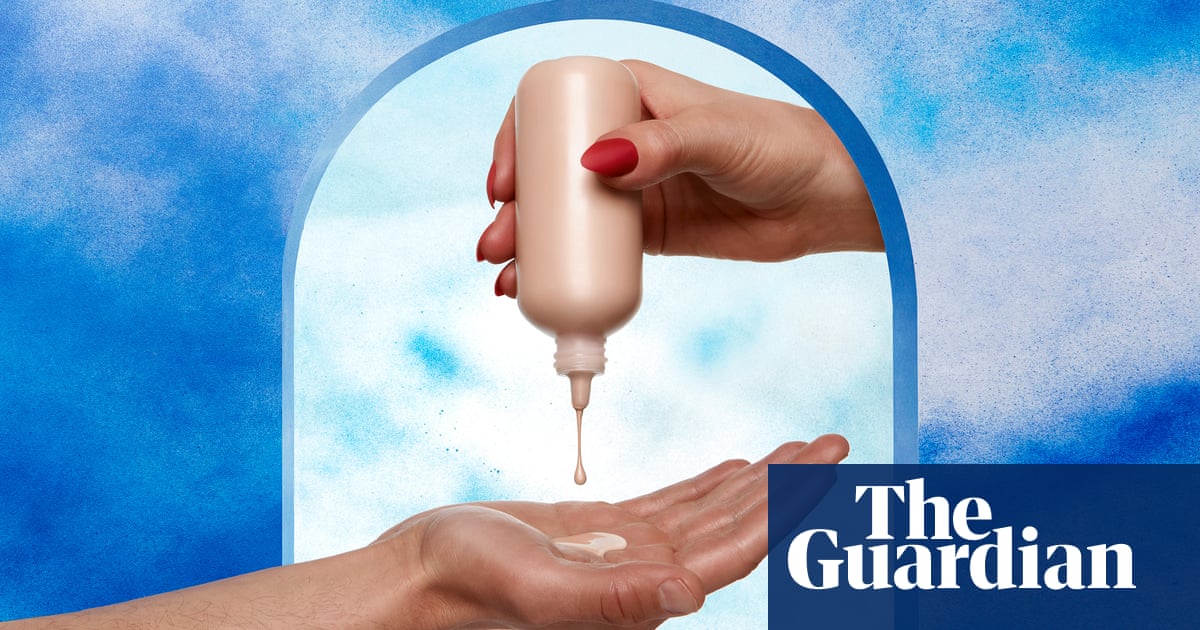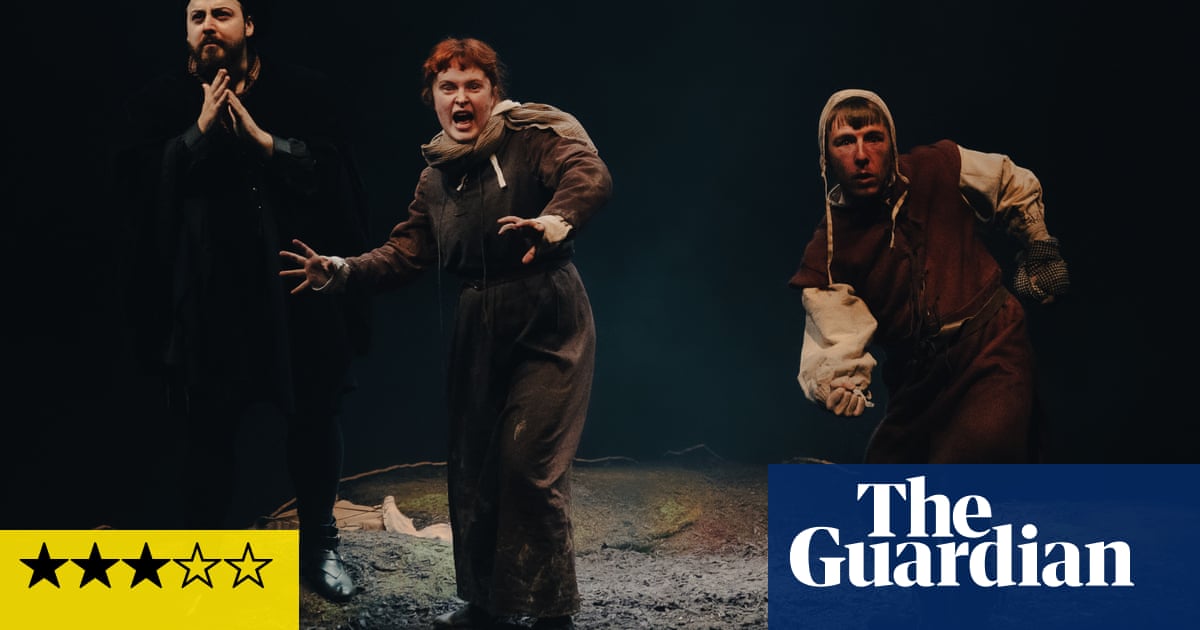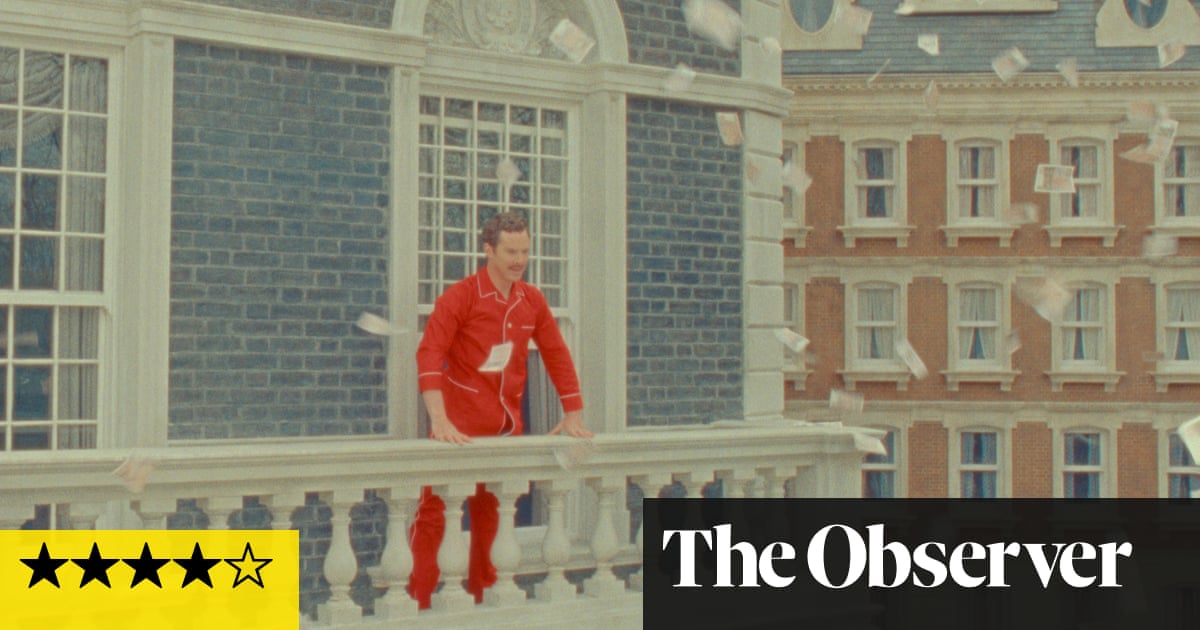
he release of this documentary coincides with #MeAt20, a heart-twisting craze on social media for posting pictures of yourself at 20 years old. Middle-aged people’s timelines are speckled with funny, sweet and sometimes unbearably sad images of themselves in unlined, unformed youth, doing goofy things in milky analogue pictures from back when you had 12 or 24 exposures on your roll-film camera and getting them developed at Boots was a pricey business. That’s what I thought of while watching this engaging, oddly moving film from Spike Jonze: a record of the live stage show he devised at the Kings Theatre in Brooklyn, New York, in tribute to white hip-hop stars and tongue-in-cheek party-libertarian activists the Beastie Boys. It is presented by the two surviving members, Adam Horovitz and Michael Diamond, in tribute to the third member, Adam Yauch, who died of cancer in 2012. Jonze is reuniting with the band after having directed a string of their music videos, including the crime-TV spoof for their single Sabotage in 1994.
Horovitz and Diamond amble on stage, apparently dressed head-to-toe in Gap, and appear for all the world to be about to unveil the iPhone 4S, although actually their jokey anecdotalism makes the show in some ways like the regional tours once presented by George Best and Rodney Marsh. With amiably rehearsed back-and-forth banter, they introduce the embarrassing photos and excruciating TV clips that are shown on a big screen. And the effect of seeing them juxtaposed with the plump-faced frizzy-haired imps of 1986 is startling and bizarre. In the present day, the advancing years seem to have boiled away the badass attitude, leaving behind the quirky humour.
They started out in their teens as post-punk enthusiasts for the Clash, and the photos of them at this stage are starkly black-and-white. But then the archive images turn into the garish colour of MTV. The Beastie Boys got very excited by rap, were picked up for management by the (now notorious) Russell Simmons, brother of Run DMC’s Reverend Run, and soon they were opening for Madonna. In 1986, their album Licensed to Ill happened, along with its fascinating and deplorable and horribly brilliant single (You Gotta) Fight for Your Right (To Party!) – an anthem for blearily defiant Reagan-years hedonism. I remember hearing it around the time I read PJ O’Rourke’s Republican Party Reptile.
The Beastie Boys sold truckloads of records all over the world, and their puppyishly zany image co-existed with limitlessly energetic anarchy. They were, as they fondly recall, expected to be very dangerous on their foreign tours: particularly the British tour. Surreally, a full page of the Sun is flashed up on stage, and the band appear next to a giant picture of former Tory education secretary Kenneth Baker.
The band’s live show featured a giant penis emerging from a box. Horovitz and Diamond explain they were intending to satirise the frat-boy image and it took over – though they have the grace to say that they didn’t really care at the time about an alleged misunderstanding that was making them globally famous and rich. However, they also appear genuinely mortified at the fact that, in the early days, they fired the only woman in their original lineup: Kate Schellenbach (now the TV producer of The Late Late Show with James Corden). They repudiate their early reputation for sexism, but nobody in the film mentions these lyrics from the early single Paul Revere: “I did it like this / I did it like that / I did it with a whiffle ball bat.”
Inevitably, the Beasties spiralled financially over the top, relocating to LA where they rented a gigantic house featuring a swimming pool with a bridge over it, and went broke. Their accountant phoned to announce this event and heartlessly signed off with: “I’ve gotta go; I’ve got Donny Osmond on the other line.” A relocation back to New York, a chastened existence playing smaller clubs, and continued musical experimentation proved to be their path back up to the big league, and Yauch became a campaigner for Tibet. This film is a time capsule of the 1980s: an era that was crass and excessive in so many ways, but now seems weirdly exotic.












